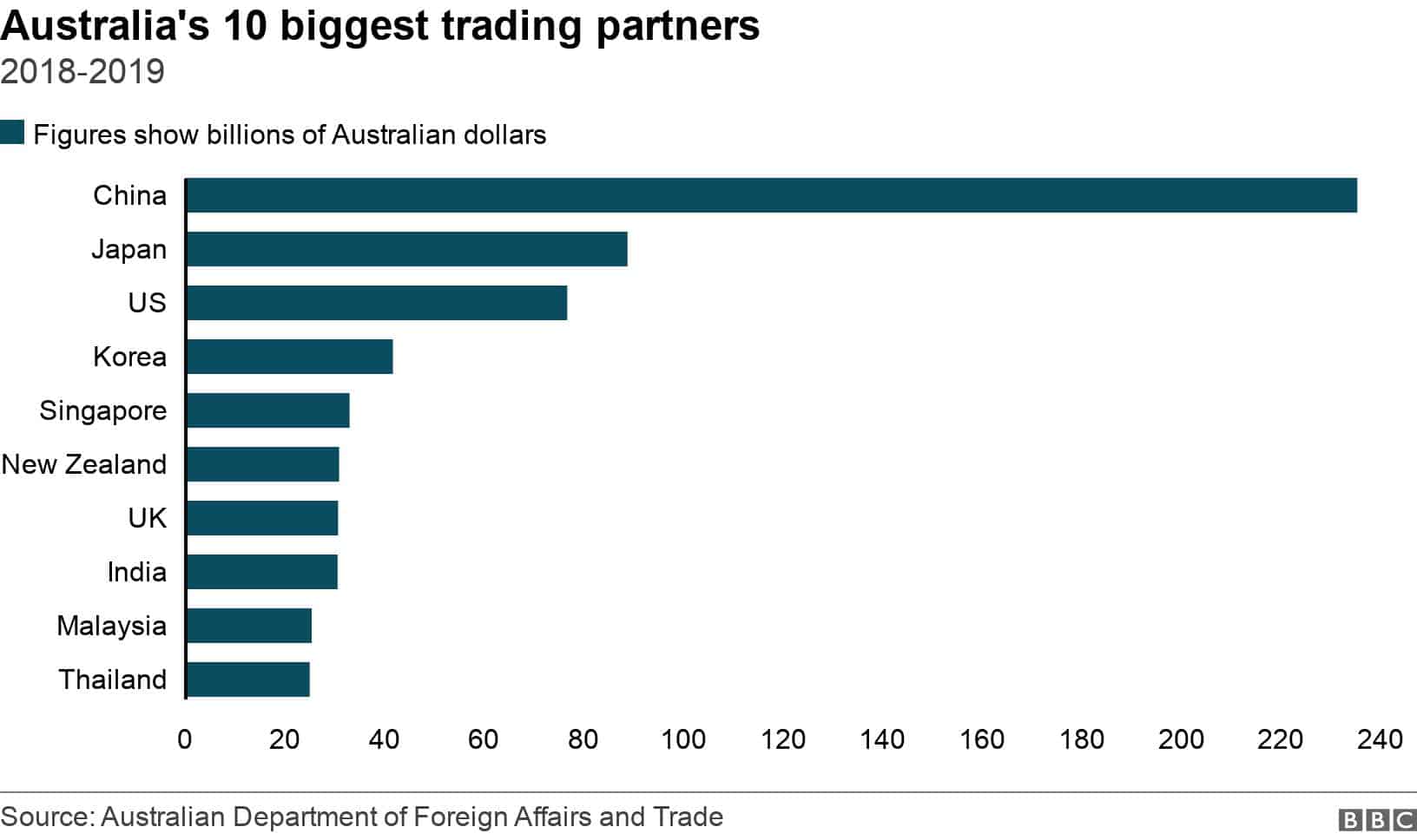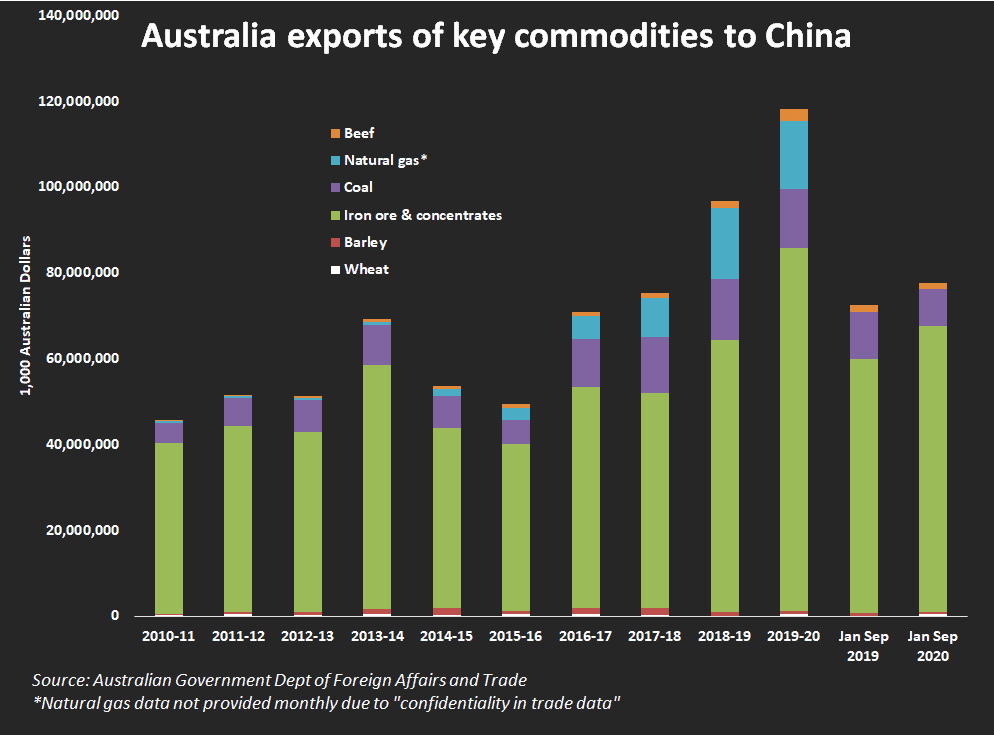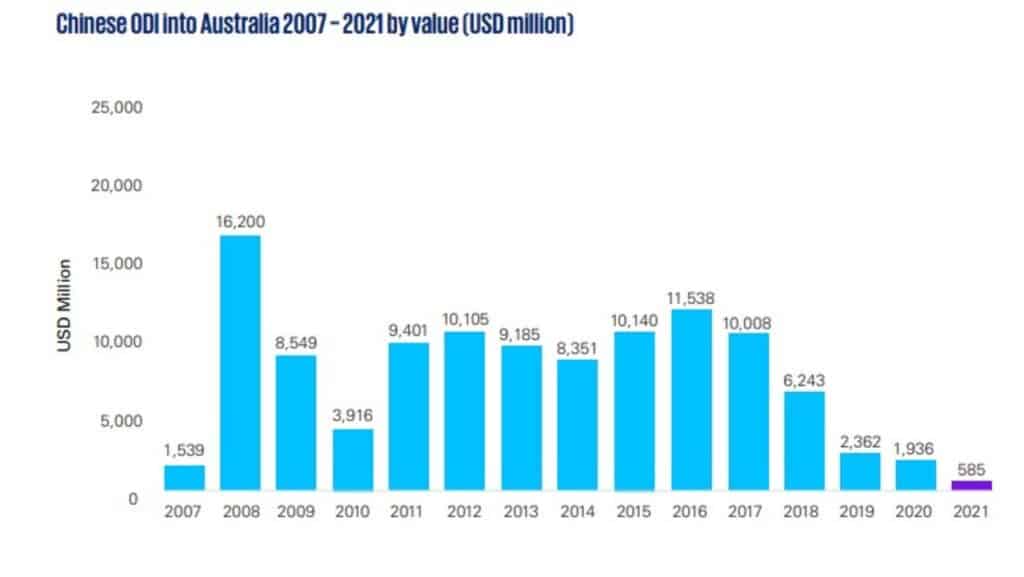
Though China’s burgeoning political ambitions and influence are felt all over the world, Australia has likely been the nation most affected politically during the past several years. Australia is a long-standing treaty partner of the United States and is a medium-sized, open, and multicultural democracy. Australians have excellent cause to appreciate China’s economic growth, which has come with a voracious desire for Australia’s exports of iron ore, coal, and other minerals after three decades of unbroken success. A third of everything Australia sells to the globe is now purchased in China, and a significant portion of Chinese students and visitors visit Australia.
Traditional global geopolitical and strategic issues have dominated Australia-China relations, but since then, the two nations have developed a number of shared bilateral and regional interests, including close economic links. China, a rising global power, nevertheless continues to see each bilateral relationship from the perspective of bigger global challenges. In particular, Australia’s alliance with the US means that the state of relations between the US and China directly affects Australia’s relations with China.
In this article, we’ll examine how China has influenced Australian politics by studying Australia’s economic and trade dependence on China, China’s present stance toward Australia, and how Australia’s Chinese community influences domestic policy.
Australia’s economic and trade dependency on China

Since the 1970s, rapid industrialization increased manufacturing, and infrastructure investment have all contributed to China’s rise. As a result, there was a demand for construction supplies, energy for electricity and transportation, as well as raw materials for manufacture. A large portion of this demand could be met by Australia, which also provided a ready market for Chinese manufactured goods.
Australia’s top trading partner today in terms of imports and exports is China. Australia is China’s sixth-largest trading partner, its fifth-largest import provider, and its tenth-largest export buyer. China accounts for 25% of Australia’s manufactured imports, and 13% of its thermal coal exports to China.
The following are the top 3 aspects which show Australia’s economic dependency on China.
China as a potential market for Australian goods

Exports of raw materials, particularly metalliferous ores (primarily iron ore) and coal, have been a major factor in the value and growth of items shipped to China in recent years. Iron ore exports from Australia made up 56% of all items shipped to China in 2019–20, and they were a major contributor to the rise in exports from 2014–15 to 2019–20.
Since the start of the China-Australia Free Trade Agreement (ChAFTA), exports of other goods, such as meat (particularly beef), pharmaceuticals, and drinks, have increased significantly (in particular red wine).
Chinese Investment in Australia

Any nation’s growth depends on investment. It boosts productivity, creates jobs, and boosts the economy. All members of the community profit from these benefits, which include increased earnings and a wider selection of goods.
Additionally, the investment’s profits raise more money for taxes, which in turn enables the government to offer more services (or reductions in tax burdens elsewhere). There are further advantages that can result from foreign investment, including the opening up of companies to global supply chains and new international markets, as well as the exposure of companies to cutting-edge technologies. Maintaining the high standards of living that Australians enjoy has always depended on foreign investment and always will.
Between 2010 ($19 billion) and 2016 ($87 billion), Chinese investment in Australia more than doubled in value. It’s significant that the majority of recent Chinese investment is in industries that depend on consumer spendings, such as health, tourism, and agribusiness, helping Australia shift to more diverse sources of development. Chinese investment provides knowledge and contacts in addition to finance. Australia stands to gain significantly, but we can’t do it alone.
New business opportunities in China
Many Australian products are subject to Chinese taxes and trade restrictions. However, there are fewer constraints on Australian service exports and foreign direct investment. As a result, Australian companies can continue to invest in several of China’s most dynamic industries, including services, biotechnology, green technology, medical devices, and biotechnology.
Due to an ageing and more affluent population, the conglomerate Ping An Insurance, for instance, predicts that China’s healthcare market will increase from RMB 6 trillion in 2019 to RMB 16 trillion by 2030. Agrifood investment rose by 66% to $6.6 billion in China in 2020, demonstrating the nation’s expanding need for new food and agricultural technology.
There will be opportunities for Australian businesses to invest in China, even though Chinese savings will likely continue to be strong enough to support domestic expansion. Corporations could benefit from learning about Chinese tastes and preferences as well as business culture in this way.
The fact that so many Australians know Mandarin is a huge benefit for industries in Australia that provide high-end goods and services. Another is the network of contacts and expertise accumulated via resource exchange.
Read Full Article: How Much Influence Does China Have Over Politics In Australia?
Comments
Post a Comment